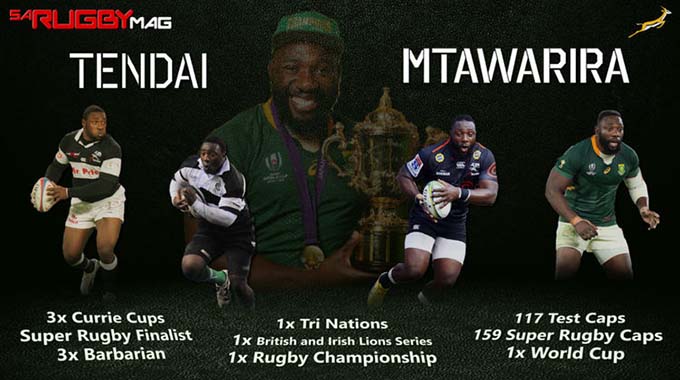For us, just like the Kenyans in 2008, this all felt like our Obama moment

Robson Sharuko on Saturday
THE Nyayo National Stadium in Nairobi was absolutely rocking, on that winter day on June 14, 2008, with an estimated 28 000 fans of Kenya’s Harambee Stars in full voice.
There was a sizeable number of Warriors fans, too, who had been flown there on a chartered Air Zimbabwe Boeing 737 jet to give Benjani and his men support in this 2010 AFCON qualifier.
Hopes were high for the visitors, after all, these Warriors had gone to Conakry and held Guinea, in the first match, before beating Namibia at Rufaro to take pole position in their group.
But, all their songs were drowned by the noise generated by an inspired home crowd, who sang from start to finish, with the decibels rising significantly whenever they plunged into their favourite song.
A simple song, fashioned out of just three words – “OLIECH, OBAMA, ODINGA,’’ – but there was no mistaking the richness of its poetry, their pride in singing about them and the outpouring of love towards the three men.
The Odinga they were singing about was Raila.
The guest of honour at that match and, just the previous month, he had been sworn in as Prime Minister in a power-sharing deal which ended months of political mayhem which cost more than 1000 lives.
The Oliech they were singing about was Dennis.
A forward with some pace to burn, who was playing for French club Auxerre, his goal that day providing justification, if any was needed, why he was a firm favourite with the Kenyan fans.
The Obama, they were singing about was Barack.
The man who, exactly a week earlier, had become the Democratic candidate for the United States Presidency after Hillary Clinton officially ended her campaign and endorsed him for the big job.
Listening to those Harambee Stars fans singing, one got the feeling they considered the United States senator, now in the final countdown for a shot at making history, by becoming the first black American President, one of their own.
They didn’t care his first visit to Kenya had come at the age of 27, in 1988, on a voyage of spiritual and self-discovery to learn more about his family roots, on his father’s side.
On that visit, only his half-sister, Auma, and aunt Zeituni came to pick him up at the Jomo Kenyatta International Airport.
An old blue VW Beetle was the car which awaited him, to take him around Kenya, where he would roam freely around the capital, paying visits to the slums of Nairobi, enmeshing himself in the city’s culture.
Even spoiling himself with drinking and dancing, without worrying about security, or precaution.
When he returned, four years later, in the company of his fiancé Michelle, no one outside his family seemed to notice and it’s unlikely anyone, save for his immediate people, followed the good story that, in October that year, they were married.
Of course, by the time he made his third trip, two years before all that singing at the Nyayo National Stadium, he was now a United States senator and even had time to visit his father’s grave.
He was also called Barack Obama.
A Luo from Kenya, the senior Obama had met his American wife in a Russian language class at university in Hawaii, married her on February 2, 1961, six months before their son was born.
But, just three years later, in March 1964, the marriage was over.
The senior Obama soon returned home to Kenya, that same year, and would see his son only once, at Christmas in 1971 during a visit to the United States, before his death in an accident in 1982.
By the time the younger Barack won the United States Presidency on November 4, 2008, in an historic triumph just five months after his name rang out at the Nyayo, every Kenyan had embraced him as one of their own.
REMEMBER THE OBAMA DAY HOLIDAY IN KENYA?
The Obama Day public holiday was declared that same month in Kenya as the country celebrated what they believed was one of their own making history and becoming the first black man to be American President.
“We the Kenyan people are immensely proud of your Kenyan roots,” then President, Mwai Kibaki, said.
That Obama was born in Hawaii, 17 500 kms away from Nairobi, didn’t matter to them.
That he now carried an American passport wasn’t even an issue to them.
And, that he spoke, not like any of them, but like some guy from Chicago’s South Side, wasn’t something they cared about, that he was born in Hawaii wasn’t even important to them, that he only first visited Kenya when he was 27 wasn’t an issue with them.
As far as they were concerned, he was one of them.
Even anti-apartheid icon Nelson Mandela, who also had earlier cleared massive hurdles, including spending 27 years in jail for fighting an unjust political system, to become South Africa’s first black president, welcomed Obama’s victory.
“Your victory has demonstrated that no person anywhere in the world should not dare to dream of wanting to change the world for a better place,” he said in his congratulatory letter.
American singer R. Kelly even penned a tribute song to Obama, “I Believe.”
And, listening to the lyrics again this week, it came out as if it was written for a number of people, including Tendai “Beast’’ Mtawarira.
The Zimbabwe-born superstar who, last Saturday, won the Rugby World Cup in the colours of South Africa.
And, just for his stake, I have juggled with the words penned by R. Kelly, in his moving song, and put the lyrics into something like a story which, when you read it, gives a touch that appears it was written for the Beast.
“In small towns, and big cities, we came together, as believers and non-believers, black and white, to stand up and say that we are one nation, we are one people, and our time for glory has come.
“When the mountain seemed too high, and you didn’t seem to have the courage nor strength to climb, and the road you were on wouldn’t end but you still ran, even though you couldn’t even see the finish line.
“And even when you had all those dark clouds over you, and the skies were no longer blue, you somehow managed to march on straight ahead.
“And somehow you made it through, got to the top of the mountain, your victory, made history, and now we all believe.
“When it felt like you were weak, and you couldn’t fight no more, you were on the ropes and it seemed like you were going to run out of breath.
“When the world was on your shoulder, and the walls were in your way, you leaped and made it over.
“Through it all you kept the faith, with hope you set us free, you showed us how to dream, and now we can lift our voices and forever sing.
“Now is the time to look ahead, and thank our heroes of the past, celebrate this victory, let’s raise the flag.
“And when they tried to keep you down, you kept your head up, never losing sight, you believed in what was right, you endured to the end, walked through the strongest wind, the storm is over and a new day begins.
“When our hope was dying, you bought us healing and now we have got something, to tell our children, that the Beast and his World Cup gold medal are coming home.’’
AN ARMY OF CRITICS, A PEOPLE ALLERGIC TO GOOD NEWS
We have been getting some criticism, on social media sites, from some Zimbabweans who have been questioning why we have been celebrating the Beast’s World Cup success story.
That brigade has been saying the Beast won the World Cup for South Africa, fair and fine, in the Springboks colours, of course, and after singing the South African anthem, which is also true.
The passport he presented, to qualify to play for the Boks in that World Cup, was a South African one, and not a Zimbabwean one.
And these guys have been saying why then should we go into overdrive celebrating another country’s success story?
The same people who didn’t have any issues last year when Japan exploded in celebrations when Naomi Osaka won the US Open tennis after entering that tournament with an American passport.
The same people who didn’t question why the Japanese were celebrating when Osaka’s father is from Haiti, her connection to Japan is through her Japanese mother and the tennis star has been living in the US since she was three.
The same people who didn’t question why the celebrations when Osaka only gave up her American citizenship this year, and retain her Japanese citizenship, to ensure she plays for the Asian country at next year’s Summer Olympics.
The same people who didn’t question why the Japan Times ran with a story that said, “Naomi Osaka became the first Japanese player to win a Grand Slam singles title Sunday at the US Open, sparking celebrations among her family and compatriots in Japan,’’ when her father was from Haiti.
The very people who did not seem surprised by Japanese Prime Minister, Shinzo Abe’s message on Instagram praising Osaka’s accomplishment by saying that, “at difficult times like now, thank you for the energy and inspiration.’’
The same people who didn’t ask questions three years ago why Vivian Jemuita, who was born in Kenya, was now set to compete at the Summer Olympic Games in Brazil as Yasemin Can, after assuming Turkish citizenship.
And somehow, they never asked themselves why a Japanese national rugby team, with more than half-a-dozen players drawn from foreign countries, including captain, Michael Leitch, had found a way to unite their nation behind it with its superb performance at this World Cup.
When Anthony Joshua features in an advert saying, “we Nigerians never give up,’’ these guys have no problem with it, even though he is fighting under the British flag.
But, they have issues when we raise a toast to celebrate the achievements of Mtawarira because, they say, he is playing for South Africa.
Of course, he is, but that’s geography.
Just check his name, Tendai, and that tells a story about who he is, a guy who went up to High School here and whose parents still live in Hatfield in Harare.
What can’t be changed is who he is, the boy from Zimbabwe who made it big in South Africa.
Patrick Vierra won the World Cup with France but that doesn’t erase his Senegalese heritage, Paul Pogba won the World Cup with France but that doesn’t erase his Guinea heritage.
A part of the Beast will always carry our identity, wherever he goes, and a part of him will always stay with us, wherever we are.
It’s that simple, anything else is either drama or denial.
To God Be The Glory!
Peace to the GEPA Chief, the Big Fish, George Norton and all the Chakariboys in the struggle.
Come on United!!!!!!!!!!!!!!!!!!!!!!!!!
Ole, Ole, Ole, Ole, Ole, Ole, Ole Ole!
Text Feedback — 0772545199
WhatsApp — 0772545199
Email — [email protected], [email protected]
You can also interact with me on Twitter — @Chakariboy, Facebook, Instagram — sharukor and every Wednesday night, at 9.45pm, when I join the legendary Charles “CNN’’ Mabika and producer Craig “Master Craig’’ Katsande on the ZBC television magazine programme, “Game Plan”.










Comments